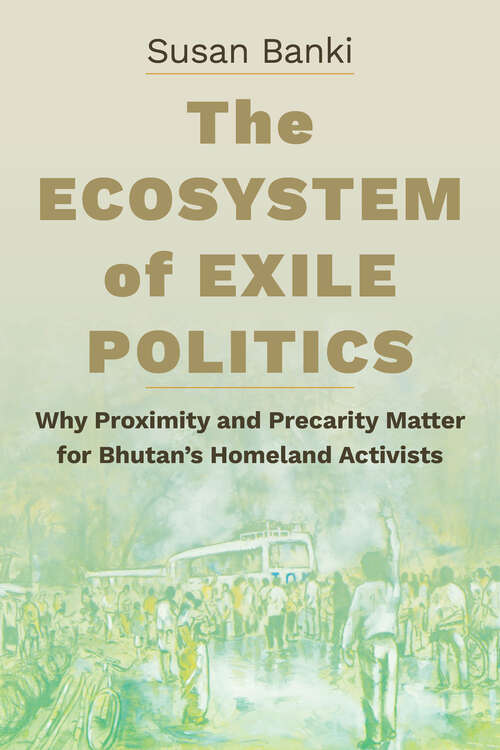The Ecosystem of Exile Politics: Why Proximity and Precarity Matter for Bhutan's Homeland Activists
By:
Sign Up Now!
Already a Member? Log In
You must be logged into Bookshare to access this title.
Learn about membership options,
or view our freely available titles.
- Synopsis
- The Ecosystem of Exile Politics relays the events in Bhutan that led to the exodus of one-sixth of the population, and then recounts the activism by Bhutan's refugee diaspora that followed in response. Susan Banki asserts that activism functions like a physical ecosystem, in which hubs of activism in different locations interact to pressure the home country. For Bhutan's refugee mobilizers, physical proximity offers advantages in Nepal and India, where organizing protests, lobbying, and collecting information about government abuse in Bhutan is aided by being close to the homeland. But in an ecosystem of exile politics, proximity is both a boon and a bane. Sites proximate to Bhutan can be spaces of risk and disempowerment, and refugee activists rarely secure legal, political, and social protection. While distant diasporas in the Global North may not be in precarious situations, they cannot tap into the advantages of proximity. In examining these phenomena, The Ecosystem of Exile Politics adds to theoretical understandings of exile politics and to empirical research on Bhutan and its refugee population.
- Copyright:
- 2024
Book Details
- Book Quality:
- Publisher Quality
- ISBN-13:
- 9781501778216
- Related ISBNs:
- 9781501778223, 9781501778193, 9781501778209
- Publisher:
- Cornell University Press
- Date of Addition:
- 11/15/24
- Copyrighted By:
- Cornell University
- Adult content:
- No
- Language:
- English
- Has Image Descriptions:
- No
- Categories:
- Nonfiction, Politics and Government
- Grade Levels:
- Graduate Student
- Submitted By:
- Bookshare Staff
- Usage Restrictions:
- This is a copyrighted book.
